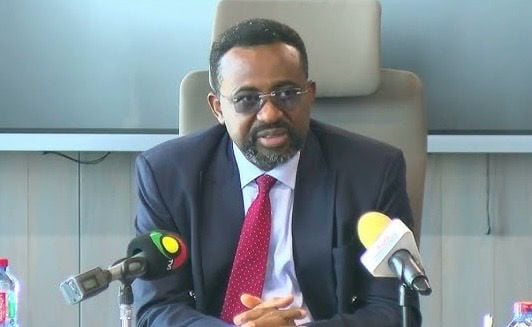The Monetary Policy Committee (MPC) of the Bank of Ghana, tasked with steering the nation’s monetary policy, convened its 123rd regular meeting on Friday, March 28th, 2024. The primary objective of this meeting was to thoroughly analyze prevailing economic conditions, assess potential risks to the inflation outlook, and determine the appropriate course of action for the policy rate, a pivotal instrument influencing interest rates within the Ghanaian economy. Following comprehensive deliberations, the MPC concluded that an upward adjustment to the policy rate was necessary to effectively address inflationary pressures and guide the economy towards a more stable trajectory.
The outcome of the MPC’s discussions was a decision to increase the policy rate from 27% to 28%, a rise of 100 basis points. This decision reflects the committee’s determination to rein in inflation and restore price stability, a critical factor for sustainable economic growth and improved living standards. The policy rate serves as the benchmark interest rate for commercial banks’ borrowing from the central bank and the interest paid by the central bank on commercial banks’ deposits. By raising the policy rate, the Bank of Ghana aims to curb inflationary pressures by making borrowing more expensive, thus reducing aggregate demand and encouraging saving.
The rationale behind this decision stems from the MPC’s assessment of the current economic landscape, characterized by persistent inflationary pressures. The committee acknowledged the necessity of a decisive monetary policy response to anchor the disinflation process, a sustained reduction in the rate of inflation, and steer the economy towards a path of price stability. The MPC underscored its commitment to closely monitor the impact of this policy adjustment and reassess the potential for a gradual easing of the policy stance once inflation is firmly anchored. This suggests a data-driven approach, with future policy decisions contingent on the evolving inflation dynamics.
In conjunction with the adjustment to the policy rate, the Bank of Ghana is implementing a suite of complementary measures aimed at bolstering liquidity management and enhancing the effectiveness of monetary policy transmission. These measures are designed to reinforce the impact of the policy rate change and ensure its desired effect on the broader economy. One key measure involves the introduction of a 273-day instrument to augment the existing sterilization toolkit. Sterilization operations are undertaken by central banks to neutralize the impact of foreign exchange interventions on domestic money supply, thereby maintaining control over monetary conditions. This new instrument will provide the Bank of Ghana with greater flexibility in managing liquidity and mitigating potential inflationary pressures stemming from foreign exchange market dynamics.
Furthermore, the central bank will intensify its monitoring of banks’ Net Open Positions (NOPs) to ensure compliance with regulatory requirements. NOPs represent the difference between a bank’s open foreign exchange assets and liabilities. Monitoring NOPs is crucial for maintaining financial stability and mitigating risks associated with foreign exchange exposures. By closely scrutinizing banks’ NOPs, the Bank of Ghana aims to ensure that financial institutions are adhering to prudent risk management practices and operating within acceptable limits, safeguarding the stability of the financial system.
The Bank of Ghana also plans to undertake a comprehensive review of the existing structure of the Cash Reserve Ratio (CRR). The CRR is the percentage of a bank’s deposits that it is required to maintain in reserves with the central bank. This review aims to assess the broader impact of the CRR on liquidity conditions and financial intermediation within the economy. By evaluating the effectiveness of the current CRR framework, the central bank seeks to optimize its impact on liquidity management and ensure that it supports efficient financial intermediation, the process by which banks channel funds from savers to borrowers, facilitating economic activity. The Bank of Ghana’s multifaceted approach, combining a policy rate adjustment with complementary measures targeting liquidity management and the CRR, reflects its commitment to effectively managing inflation and fostering a stable and resilient financial system, crucial prerequisites for sustainable economic growth and development.


